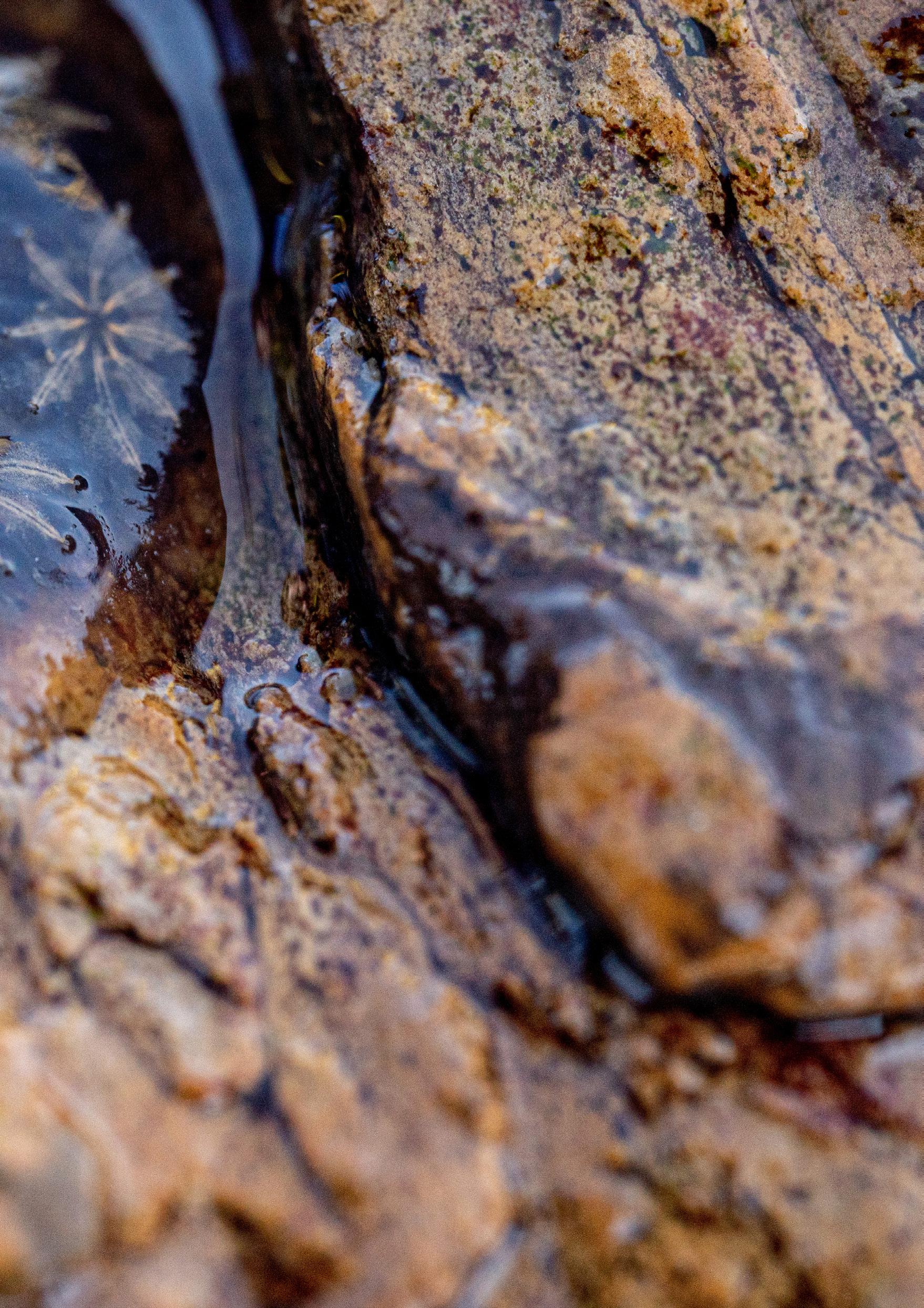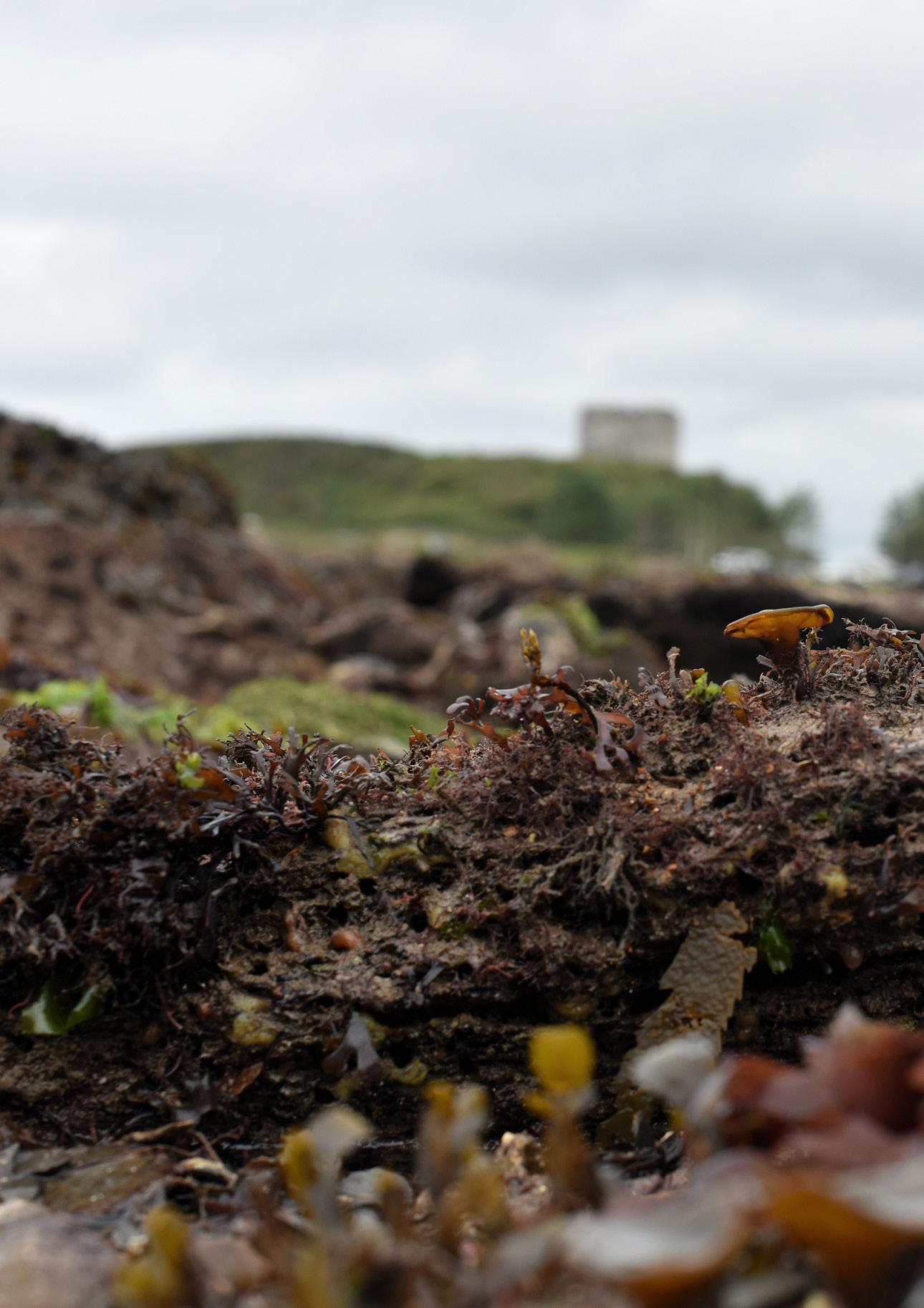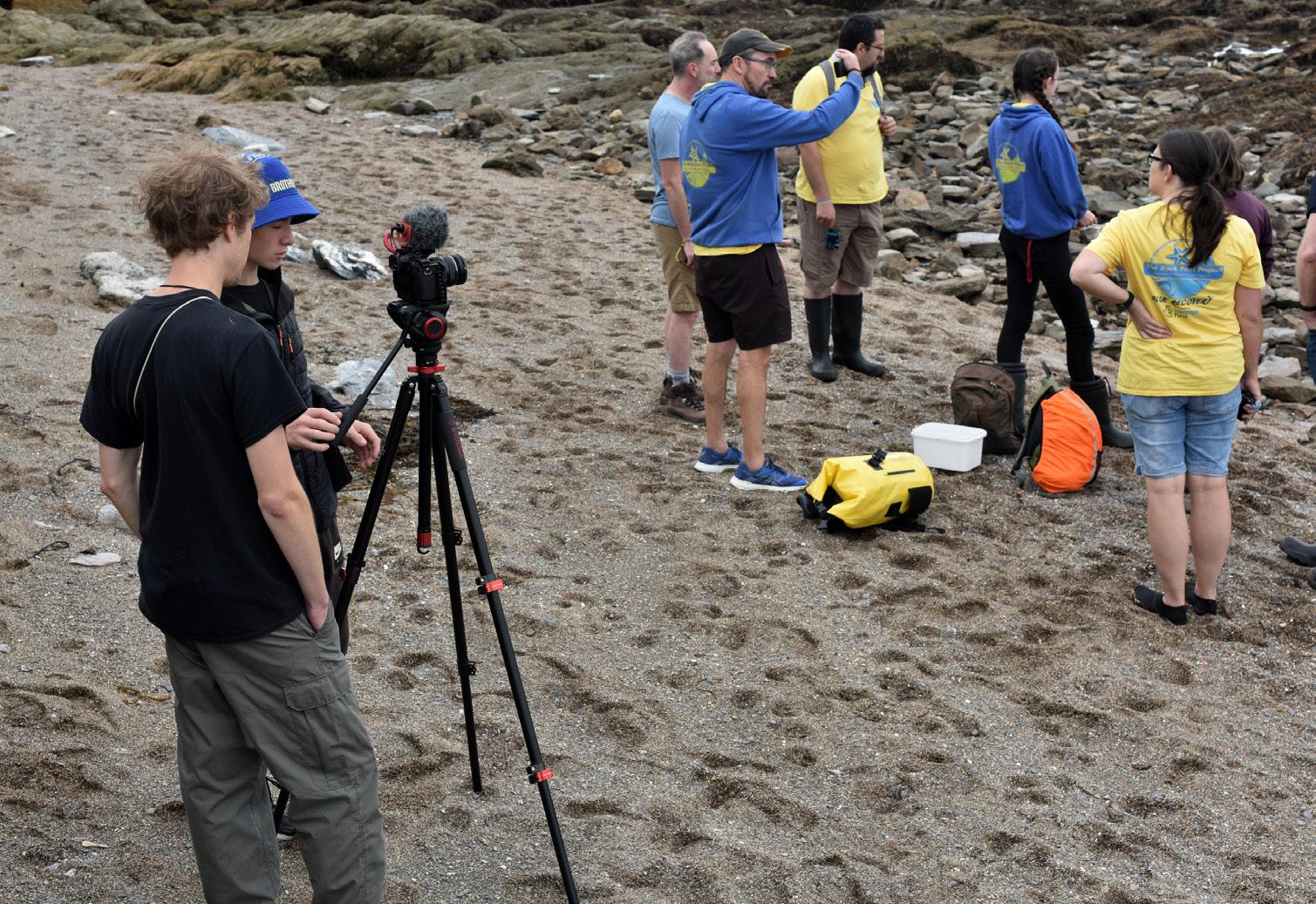Blue Recovery Year 1 Report








The overall aim of the Rock Pool Project is to empower us all to improve our relationship with the marine environment by connecting science and education. The Rock Pool Project is a not-for-profit organisation, led by an experienced professional marine biologist and an equally experienced primary school teacher, and supported by a talented and enthusiastic volunteer network. The team are passionate about bringing the joys of discovering marine wildlife to everyone, in a manner that builds on our collective understanding of our precious marine natural heritage.
Thanks to the National Lottery players and The National Lottery Heritage Fund, Blue Recovery aims to help hundreds of local people to explore, understand and care for their local wildlife and coastline. Adults and families from specific, eligible communities will enjoy free, expert-led rock pooling events, receive citizen science training and experience the freedom that comes with enjoying a rock pool ramble with friends at their local beach.
The programme connects with a range of experienced community partners, The Dracaena Centre and Nudge Community Builders link communities where a high proportion of people rarely, if ever, access their local coastline. The Mount Batten Watersports and Activities Centre help facilitate and empower people to regularly enjoy their local marine heritage. Working with the renown Marine Biological Association ensures that all wildlife images and data collected through the Blue Recovery project contribute is meaningful, high quality and can be used for scientific and conservation research.
This report is a chance to look back over the past year, to reflect on the Blue Recovery programme milestones and evaluate our impact (against what we hoped to achieve). We have worked with Plymouth based social enterprise Fotonow CIC to help capture the journey of Year One. They have produced this report having followed our progress, filmed and photographed events and helped share the data within.
Fotonow utilise creative media in a way that helps showcase impact, distance travelled and give an authentic voice to participants and communities. A register will show us that a number of people took part in an activity, whereas a photograph of those people taking part in that activity visualises that number while revealing much more - the wellbeing of an experience shared revealed in the expressions of those taking part.
For this reason we have commissioned Fotonow to explore evaluation in its most creative form, here an a summary of project milestones, data, quotes and crucially images and links to short digital stories that reflect back what was Blue Recovery, Year 1.




Dr Ben Holt is Citizen Science & Falmouth Hub Leader and Alan Smith is Community Engagement & Plymouth Hub Leader, both have been in post for 12 months.
The project has supported the development of 7 Rangers in Falmouth and 8 Rangers in Plymouth. Weekly sessions allow these volunteers to develop project management and marine biology knowledge, to become leaders of future beach survey events.
During the first year Blue Recovery has enabled 8 events to be held, with 4 in Falmouth and 4 in Plymouth. They are open days, where participants engage with visitors to the area to share their new and developing knowledge and confidence.
The project has delivered 24 expert-led community events (12 in each hub) for participants to discover and learn about local marine heritage in the field. A total of 231 people were from target communities. Free transport was provided where required.
We recruited two KickStart-funded trainees; a Citizen Science Coordinator and a Community Engagement Coordinator who both worked 25 hours a week for 6 months.

We launched our innovative online project hub for participants to record their wildlife finds and receive project updates. We now have over 100 users with around 500 hours usage to date.
A wide range of educational workshops have taken place, from ‘flagship’ community talks with guest speakers such as ‘Loving Limpets’ held in person to an audience of over 60 people in Plymouth - and broadcast on Zoom & YouTube, to online training for Rangers & volunteers on how to upload & record citizen science surveys themselves. Weaved amongst these have been shorter, more focused workshops held before rock pooling during a beach day, for example on seaweed identification in both hubs in November.
Last autumn we began our Citizen Science codevelopment work and have since held four co-development sessions and a public online poll to decide upon our citizen science research focus for 2023. This work determined that, both among our volunteers and the wider local community, there is a strong interest in researching the impact of coastal sewage spills on our rock pool wildlife. Our entire Blue Recovery team are now continuing with this co-development to plan this research. We have begun our fieldwork and water quality testing. This aspect of the project will play a major role in our Blue Recovery activities during 2023
We ran two large-scale BioBlitz events in Autumn 2022, which included BBQs and celebrations with our staff, volunteers and wider stakeholders.

















A year into Blue Recovery we have had a total of 260 participants (the initial target was 188 across 2 years). In Falmouth we have had 151 people from target communities join us and 109 in Plymouth. Many people are repeat attendees and are indeed regulars at our beach events.


A total of 27 people have completed a before and after ‘Blue Health’ surveys - prior to and immediately after a beach event respectively. A total of 21 people reported a positive change in their mental wellbeing, with 3 people reporting a negative change and 3 people reporting no change.

A total of 88% of respondents to the annual feedback form agreed or strongly agreed with the statement: “the Blue Recovery project has helped improve my wellbeing”
(shown on the chart from Google Forms left).

”I’m much more aware of the threats to the marine environment and individual species and ways to help.”
”I rockpool in my own time too and have been reading the free rockpool book. I also have always enjoyed taking photos so have some great photos now of some of the amazing marine life.”
”I used to stare blankly at the rockpools, not really sure what to do, now we’re scrambling over the rocks digging under kelp for devil crabs (carefully). ”
“I am more considerate about my impacts on marine wildlife both when I’m out on the coast and what lifestyle choices may affect wildlife.”

“Whenever I’m at the beach near rock pools I’m always now aware of the wildlife and take a look, adding a new experience to going to the beach.”


”Seeing other people growing interested in marine ecosystems, made me want to pursue my career even more, in order to make an even bigger change in how people view the ocean.”






Point





The past year has revealed a significant journey for the Rock Pool Project. The Blue Recovery programme has enabled dynamic growth of staff and volunteer capacity and led to the delivery of inspirational, community-education events. Where short in target numbers the team have adapted and enhanced the programme in a multitude of ways, from utilising online engagement (including social media) to producing educational events with artists and scientists.
Following the progress with cameras throughout the year has shone a light on those benefiting from the Blue Recovery opportunities. The QR codes in the previous pages transport us to powerful case studies, all can be viewed here; www.vimeo.com/showcase/9990317. And below we proudly share a case study of one family’s experience and the benefit of learning in one longer, Year One evaluation film






The focus of year two will build on achievements of the past 12 months and see The Rock Pool Project’s trained and committed volunteers further ‘step-up’ to support Blue Recovery work in Falmouth and Plymouth.

Furthermore, we will embark on our community-chosen and codeveloped citizen science investigation into the effects of sewage pollution on marine wildlife. Methodology, communications and educational materials will be produced collectively and give real purpose and direction to the Blue Recovery citizen science in Year 2.
Fotonow will produce more case-studies, in capturing the ongoing journeys that participants are having with us. In reporting this way we aim to meet and exceed our targets, whilst enhancing everything that we do through creative approaches to sharing the learning of the Blue Recovery programme.

